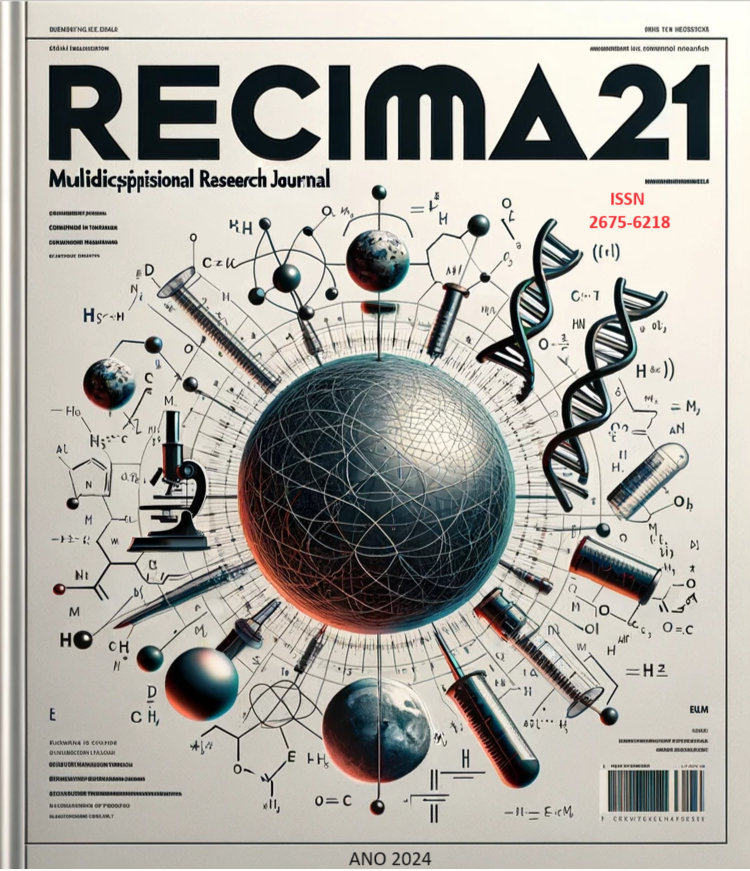TECHNOLOGICAL ADVANCES IN PRENATAL CARE: AN INTEGRATIVE REVIEW
DOI:
https://doi.org/10.47820/recima21.v5i10.5750Keywords:
Prenatal care, Technological advances, Telehealth, Fetal screeningAbstract
Prenatal care is a set of essential practices aimed at ensuring the health of both mother and fetus during pregnancy, with the implementation of programs that contribute to reducing maternal and infant mortality. This study presents an integrative literature review focused on technological advances applied to prenatal care, such as telehealth and ultrasound use, which have enhanced fetal screening and evaluation, as well as emerging technologies like genomic sequencing and in utero stem cell therapy. The research analyzed 12 relevant articles published between 2019 and 2024, highlighting the positive impact of these innovations, including the "GestAção" software, which improves the dissemination of information between pregnant women and healthcare professionals. Telehealth proved effective in facilitating remote exams and increasing the efficiency of care. However, challenges remain, such as inconsistencies in care guidelines and the need for equitable implementation of these technologies. It is concluded that technological advances in prenatal care have the potential to significantly transform the care experience, provided efforts are made to ensure their accessibility and efficiency for all pregnant women.
Downloads
References
ATKINSON, J. et al. Telehealth in antenatal care: recent insights and advances. BMC Medicine, v. 21, n. 1, p. 332, 2023. DOI: https://doi.org/10.1186/s12916-023-03042-y. DOI: https://doi.org/10.1186/s12916-023-03042-y
BOTOS, L.; SZATMÁRI, E.; NAGY, G. R. Prenatal and postnatal genetic testing toward personalized care: The non-invasive perinatal testing. Molecular and Cellular Probes, v. 72, p. 101942, 2023. DOI: https://doi.org/10.1016/j.mcp.2023.101942. DOI: https://doi.org/10.1016/j.mcp.2023.101942
DE COPPI, P. et al. Regenerative medicine: prenatal approaches. The Lancet. Child & Adolescent Health, v. 6, n. 9, p. 643–653, 2022. DOI: https://doi.org/10.1016/S2352-4642(22)00192-4. DOI: https://doi.org/10.1016/S2352-4642(22)00192-4
DEFILIPO, É. C. et al. Prenatal and perinatal care in Governador Valadares, Minas Gerais state, Brazil. Fisioterapia em Movimento, v. 35, n. spe, 2022. DOI: https://doi.org/10.1590/fm.2022.35608. DOI: https://doi.org/10.1590/fm.2022.35608.0
FERRI, A. et al. Antenatal education - Putting research into practice: A guideline review. Midwifery, v. 132, p. 103960, 2024. DOI: https://doi.org/10.1016/j.midw.2024.103960. DOI: https://doi.org/10.1016/j.midw.2024.103960
GHIMIRE, S. et al. Virtual prenatal care: A systematic review of pregnant women's and healthcare professionals' experiences, needs, and preferences for quality care. International Journal of Medical Informatics, v. 170, p. 104964, 2023. DOI: https://doi.org/10.1016/j.ijmedinf.2022.104964. DOI: https://doi.org/10.1016/j.ijmedinf.2022.104964
GROOS, J. et al. Shaping ultrasound in midwifery: towards an evidence-based training framework for enhanced prenatal care. Archives of Gynecology and Obstetrics, v. 310, n. 1, p. 23–43, 2024. DOI: https://doi.org/10.1007/s00404-024-07558-3. DOI: https://doi.org/10.1007/s00404-024-07558-3
MEDJEDOVIC, E. et al. Artificial intelligence as a new answer to old challenges in maternal-fetal medicine and obstetrics. Technology and Health Care: Official Journal of the European Society for Engineering and Medicine, v. 32, n. 3, p. 1273–1287, 2024. DOI: https://doi.org/10.3233/THC-231482. DOI: https://doi.org/10.3233/THC-231482
PEAHL, A. F.; HOWELL, J. D. The evolution of prenatal care delivery guidelines in the United States. American Journal of Obstetrics and Gynecology, v. 224, n. 4, p. 339–347, 2021. DOI: https://doi.org/10.1016/j.ajog.2020.12.016. DOI: https://doi.org/10.1016/j.ajog.2020.12.016
PEAHL, A. F. et al. Routine prenatal care. Obstetrics and Gynecology Clinics of North America, v. 50, n. 3, p. 439–455, 2023. DOI: https://doi.org/10.1016/j.ogc.2023.03.002. DOI: https://doi.org/10.1016/j.ogc.2023.03.002
PIRES, M. O. et al. Desenvolvimento e validação de software web de apoio à gestão da assistência pré-natal. Acta Paulista de Enfermagem, v. 37, p. eAPE01111, 3 nov. 2023. DOI: https://doi.org/10.37689/actaape/2024AO0000111. DOI: https://doi.org/10.37689/acta-ape/2024AO0000111
QUEIROZ, F. F. DE S. N. et al. Avaliação do aplicativo “Gestação” na perspectiva da semiótica: o olhar das gestantes. Ciência & Saúde Coletiva, v. 26, n. 2, p. 485–492, fev. 2021. DOI: https://doi.org/10.1590/1413-81232021262.41002020. DOI: https://doi.org/10.1590/1413-81232021262.41002020
Downloads
Published
How to Cite
License
Copyright (c) 2024 RECIMA21 - Revista Científica Multidisciplinar - ISSN 2675-6218

This work is licensed under a Creative Commons Attribution 4.0 International License.
Os direitos autorais dos artigos/resenhas/TCCs publicados pertecem à revista RECIMA21, e seguem o padrão Creative Commons (CC BY 4.0), permitindo a cópia ou reprodução, desde que cite a fonte e respeite os direitos dos autores e contenham menção aos mesmos nos créditos. Toda e qualquer obra publicada na revista, seu conteúdo é de responsabilidade dos autores, cabendo a RECIMA21 apenas ser o veículo de divulgação, seguindo os padrões nacionais e internacionais de publicação.













